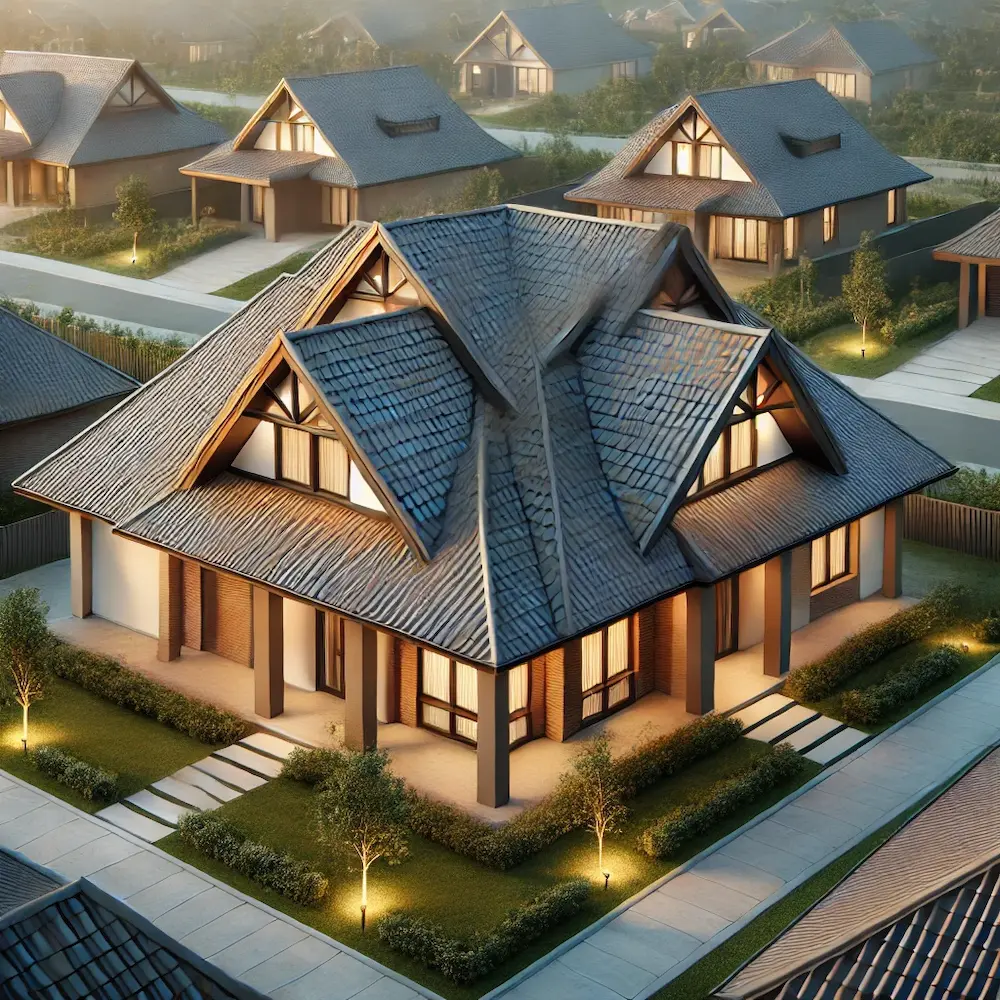A cross hip roof is a distinctive architectural feature that combines two hip roof sections intersecting at right angles, typically forming an ‘L’ or ‘T’ shape. This design is particularly suited for buildings with such layouts, offering both aesthetic appeal and structural benefits.
History and Origins of Cross Hip Roofs
The cross hip roof design has historical roots in various architectural styles. It gained prominence in Italy during the 19th century and later became a favored choice for ranch-style homes in North America throughout the 20th century. Its widespread adoption is attributed to its durability and suitability for diverse climatic conditions.
Key Features of Cross Hip Roofs
- Intersecting Hip Sections: The roof comprises two hip sections that intersect perpendicularly, creating a central seam known as a valley.
- Sloping Sides: All sides of the roof slope downward toward the walls, providing a uniform appearance and facilitating efficient water drainage.
- Enhanced Stability: The design offers increased resistance to high winds, making it suitable for areas prone to severe weather conditions.
Applications of Cross Hip Roofs
Cross hip roofs are commonly employed in residential architecture, especially for homes with complex layouts requiring multiple roof sections. They are also prevalent in regions experiencing heavy snowfall, as the sloping design prevents snow accumulation.
Considerations When Choosing a Cross Hip Roof
- Construction Complexity: The intricate design may lead to higher construction costs due to the need for precise craftsmanship.
- Reduced Attic Space: The inward slopes can limit attic space, potentially affecting storage options.
- Potential for Leaks: The valleys where the hip sections intersect can be susceptible to leaks if not properly constructed and maintained.
Conclusion
The cross hip roof is a versatile and aesthetically pleasing roofing option that offers enhanced stability and efficient water drainage. While it presents certain challenges, such as construction complexity and potential for leaks, its benefits make it a viable choice for many architectural designs.
